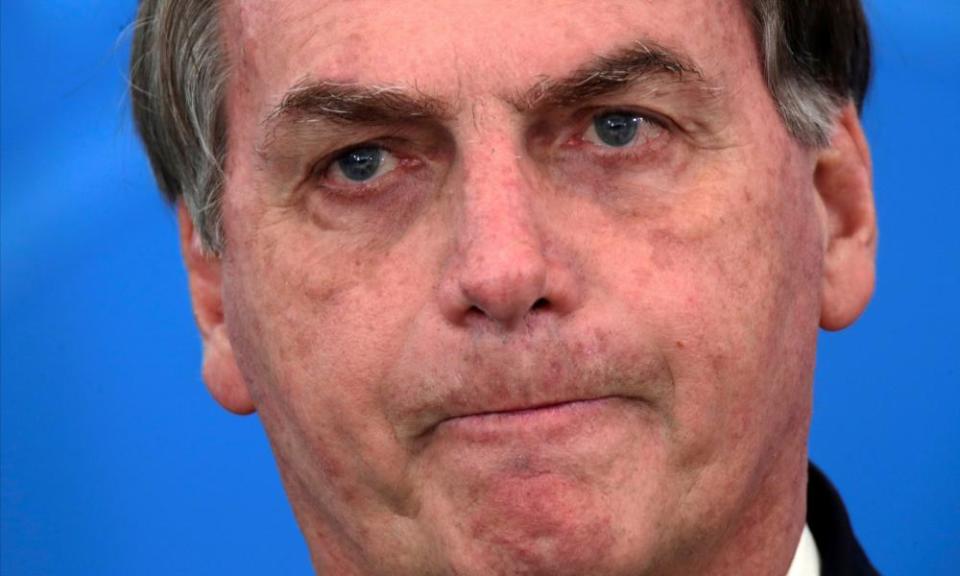The Guardian view on Jair Bolsonaro: a danger to Brazilians

Much of Brazil is now shut down. Governors impose rigorous quarantines. The health minister urges people to stay at home, warning that unless transmission is curbed the health system will collapse by the end of April. Even drug gangs lock down favelas to stop the spread of coronavirus. Meanwhile, a citizen decries the restrictions and heads out for a stroll at a local market. Facebook and Twitter remove his posts for touting unproven remedies and attacking physical distancing. One man cannot normally cause too much damage. Unfortunately, this one is the president.
Jair Bolsonaro’s ascent was always frightening, and his record since taking power last year – with attacks on human rights, minorities, the arts, and destruction of the Amazon – has been shameful. His response to coronavirus has plumbed new depths. Many governments will have to answer for their mistakes and complacency when the pandemic is over. Mr Bolsonaro’s performance is in a league of its own.
He has repeatedly dismissed coronavirus as “just a little flu” or “a bit of a cold”, and as a media trick or fantasy. Having finally acknowledged its reality, he has told people to “face it like fucking men, not kids. We’ll all die one day”, and urged the country to “get back to normal” – as if such a thing were possible. Meeting and greeting his citizens in Brasília last weekend was doubly irresponsible, given his close contact with known coronavirus cases: the danger is not only the messages he has sent, but the physical risk he could pose to others. (Fox News recently reported that Mr Bolsonaro’s son said his father had tested positive, though this was later denied.)
The governor of São Paulo, Brazil’s most populous and economically powerful state, has told the public not to follow the president’s guidance. Mr Bolsonaro’s own health minister reportedly warned he would have to publicly contradict him, apparently backing down only after he was threatened with the sack.
Brazil already has 4,579 confirmed cases and 159 deaths. In a country of 210 million people, the president’s reckless course could be the difference between tens or hundreds of thousands of deaths. The danger to indigenous peoples – for whom Mr Bolsonaro’s contempt is well documented – is particularly severe. Highly infectious diseases have devastated communities in the past; coronavirus could be an existential threat.
As erratic as Mr Bolsonaro is, his current course doubtless owes something to his political calculations. Attack the restrictions now, and when the economy tanks he can blame the dreadful decisions made by others. He has already accused governors of being “job exterminators”. Some observers also suspect that he sees the pandemic as a way to stir up his base; he has always thrived on confrontation and chaos.
Yet even former allies are finally balking at his behaviour. Ronaldo Caiado, the rightwing governor of Goiás state, severed ties with the president last week, describing his behaviour as appalling. The rightwing chief of the strongly pro-Bolsonaro state of Santa Catarina declared himself “flabbergasted” by the president’s stance. There are reports of rumblings in the armed forces. Mr Bolsonaro may not believe in physical distancing, but he is proving remarkably successful in isolating himself.

